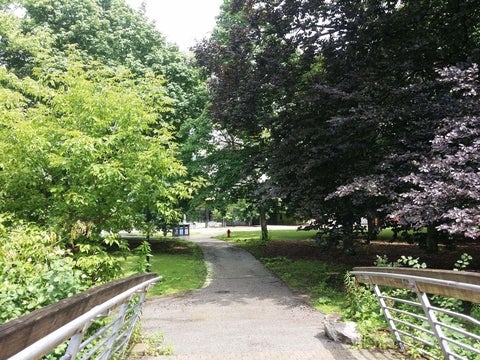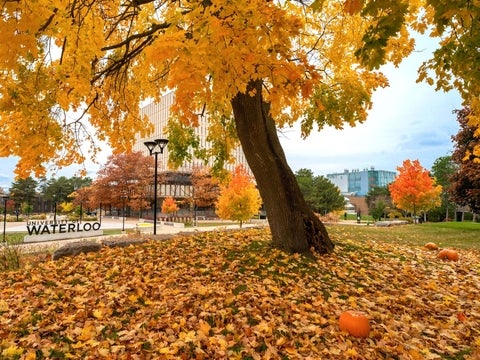The EcoMap survey helps us understand who does what, and what people care about for natural spaces on campus.
The EcoMap team surveyed students, faculty, and staff who manage natural, semi-natural, and landscaped areas on the University of Waterloo campus. Through the survey, the team sought to better understand the overlapping jurisdictions and responsibility for the University’s ecosystems by allowing us to connect management activities to these spaces. Respondents identified management activities and their frequency, and whether course-related activities occur in these spaces. They also had the opportunity to describe research interests pertaining to the areas they oversee. The following information summarizes our findings.
Managers have many roles and responsibilities
Managers often monitor the health of these areas through observation, and carry out management activities on areas like lawns, gardens, and playing fields to ensure their wellbeing. The most common management activities including weeding and picking up litter, although deadheading and planting also occur regularly. Respondents usually undertake these activities on a weekly basis, or as seasonally appropriate.


Research interests reflect larger discussions about ecological integrity and human interactions with nature

Managers who participated in the survey have multiple research interests which may inform their work and guide future projects relating to the University’s natural spaces. The following were identified most frequently as research interests:
- Pollinator biodiversity,
- Plant diversity,
- Bird diversity and abundance,
- Wildlife diversity and wildlife abundance.
While the survey focused on the perspectives of those responsible for managing natural and semi-natural areas, we also received responses from individuals who use and enjoy these spaces. Important themes raised by both managers and non-managers include:
- Managing pests and/or invasive species on campus without the use of chemical pesticides or herbicides and increasing the presence of native species.
- Realizing the potential for multi-purpose green features like fruit trees and community gardens.
- Ensuring green spaces are accessible and enjoyable.
- Appreciating benefits of nature on wellbeing.
- Comparing green areas on campus to understand differences in their ecological functioning, management and/or use frequency, and overall condition.
